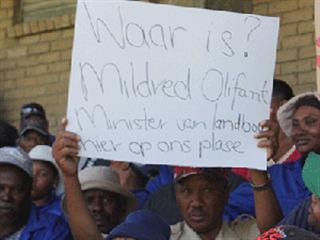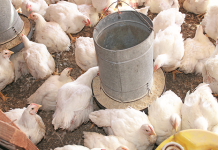
Does labour minister Mildred Oliphant truly understand how the farming sector works? I doubt it. Her decision to increase the minimum sectoral wage from R69 a day to R105 a day will partially solve one problem, but end up creating a whole lot more. As has been pointed out again and again, many farmers are already struggling to make ends meet, with massive hikes in electricity tariffs and fuel costs.
They are scarcely in a position to manage a 52% wage increase and still retain all their staff. And there’s no way at all that emerging farmers can pay these wages. With their limited production and narrow profit margins, many battle to keep going as it is. They simply do not have the capacity to absorb an input cost of this scale. The sad irony is that the agricultural sector is capable of creating many more jobs. But the government is making it almost impossible for it to do so.
In fact, we are about to see the complete opposite: an acceleration of the relentless job shedding that has taken place in the sector over the last decade or so. I have already heard of farmers starting to invest in machinery and equipment that will replace farm workers – and this barely a week after the minister’s wage hike announcement! It’s simply the beginning: this pattern will be repeated and become widespread.
For those farmers who cannot afford hi-tech solutions, it makes sense to move to less labour-intensive production. A livestock farmer needs considerably fewer workers than a crop farmer does. Other farmers will switch to contract workers. This is already a problem on farms – as was shown in the Western Cape at the end of last year – with thousands of workers struggling to survive from harvest to harvest and easily susceptible to unrest.
Farmers will not be taking these measures to spite the workers or the government, but simply to survive. Businesses everywhere are cutting costs to stay afloat. And farming is a business like any other! Farms are not NGOs; they have to show a profit, or they go under. And the more that go under, the worse for the country’s food security and food prices.
The other side of the coin
Although this high minimum wage hike is bad news for the industry, I nonetheless think that many farmers could help their case by improving the living conditions of their workers. On the other hand, it’s good to see that some farmers are well advanced in this. I recently visited a farmer in North West that sets a fine example. The workers’ housing is of a high standard.
The employees are provided with basics such as mealie-meal, and there is a huge garden where they plant their own vegetables. The crucial point is that these workers have less to worry about, as some of their basic living needs are taken care of. Adopting a hands-off attitude towards your workers’ hardships will damage your relationship with your employees and ultimately affect your business. And worker dissatisfaction on a large scale will continue to produce knee-jerk reactions from government, such as this 52% wage hike.











